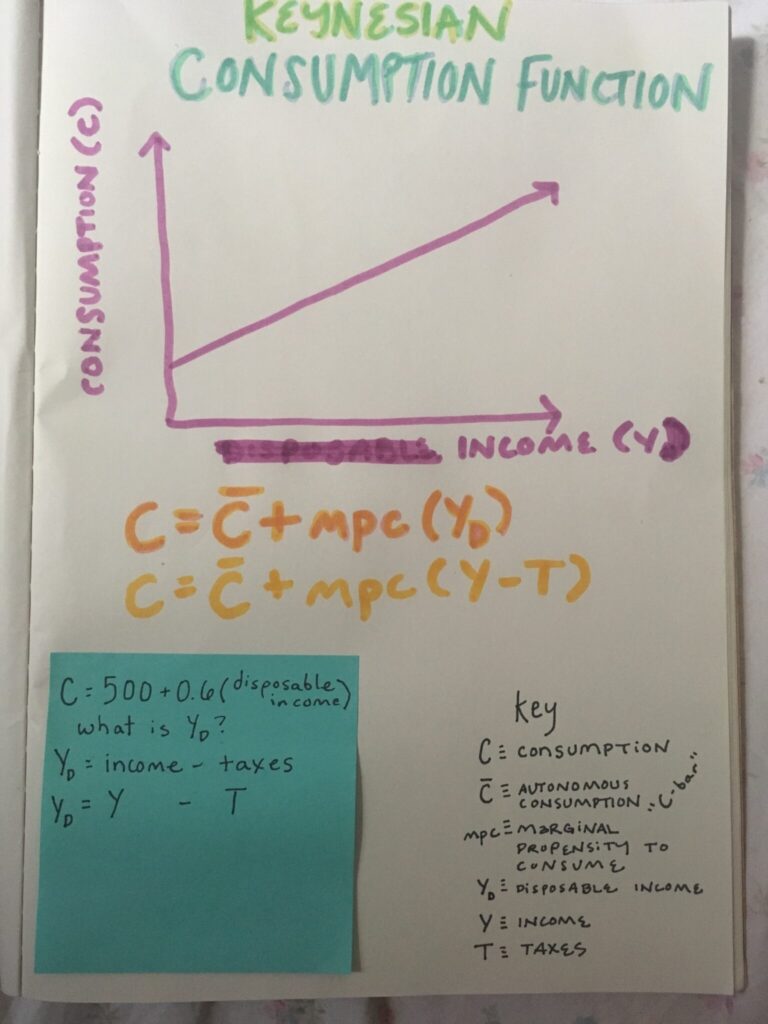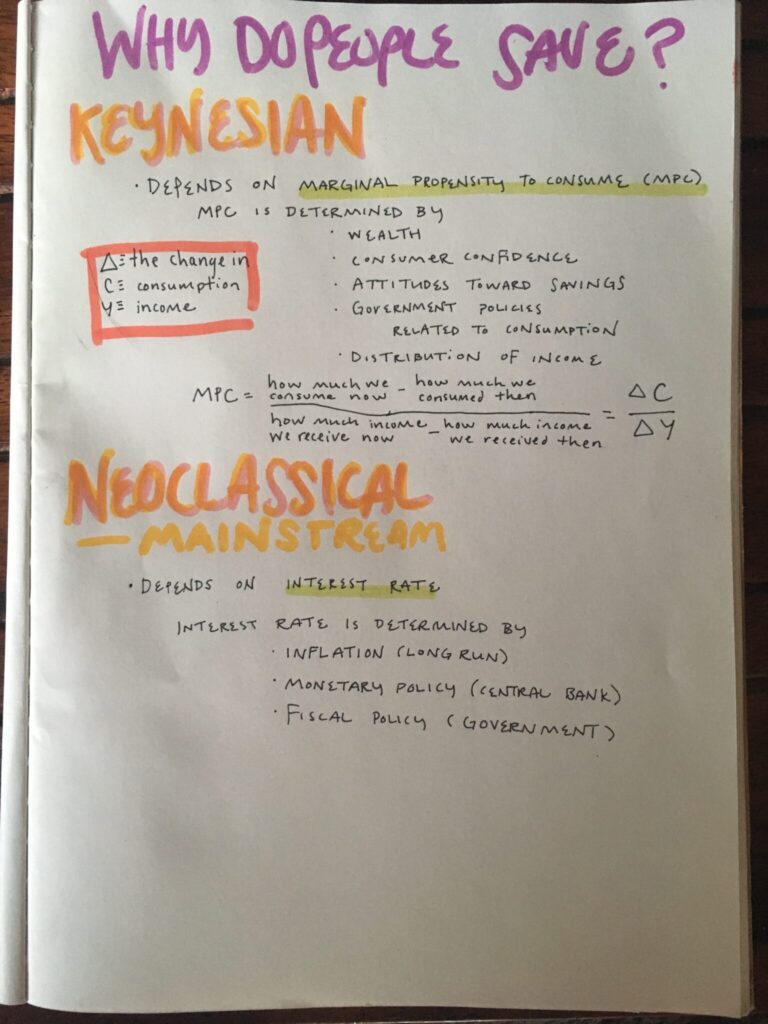Category Archives: Course Materials
Keynesian Cross & Multiplier Slides
Resources for Students Seeking to Diversify Economics
One question that frequently comes up for students after reading Kyle Moore’s Phenomenal World piece is, if the mainstream/neoclassical theory is so deeply flawed, why is it the mainstream? The answer isn’t very reassuring but there are also many groups promoting diversity of scholarship and diversity of scholars. In case you are interested in the field but are put off by what we have learned about it so far, here are some resources for you.
Inspired by the first African American economist, Sadie Tanner Mossell Alexander, the Sadie Collective seeks to “address the pipeline and pathway problem of Black Women in economics, finance, data science, and policy.” To read more about Dr. Alexander’s life and times, see the new book by Nina Banks. For a sample, check out this short interview from a few years ago.
Drawing on her work with Cecilia Rouse and supported by the American Economics Association (AEA) Committee on the Status of Minority Groups in the Economics Profession (CSMGEP), Amanda Bayer has compiled this resource about how and why coursework should be diversified. While this resource is primarily for professors, it does have tips for students trying to make their way in Economics and, for the bold, might be worth offering to professors.
The American Society of Hispanic Economists (ASHE) maintains journals, job postings, and funding opportunities relevant to its membership.
The Diversity Initiative for Tenure in Economics (DITE) is a program most relevant for graduates working in academics. It provides mentorships for early career economists from established economists. While it might not be relevant to you just yet, keep this information in your back pocket in case you choose this path and, if you are considering it, might be worth contacting some of the people involved to get their perspective.
This review of by a white male economist of several books by white male economists does a good job of describing what happened in the realm of economics that has made it so intellectually narrow. This academic inflexibility might explain the pronounced underrepresentation of marginalized groups within the field, as suggested by a white male economist duo, cis and trans.
While methodology is frequently quite run of the mill, the AEA has also recently acknowledged the formation of the Committee on the Status of LGBTQ+ Individuals in the Economics Profession (CSQIEP) who, among other things, loosely maintain this newsletter, named after queer ancestor, John Maynard Keynes, himself.
Additionally, the AEA established in 1971 the Committee on the Status of Women in the Economics Profession (CSWEP). As the aforementioned, it also maintains a fairly mainstream scholarship. By contrast, the International Association for Feminist Economics (IAFFE) engenders a wide range of economic theories and methods.
Diversifying and Decolonizing Economics (D-Econ) is a group of students and professionals embarking upon several initiatives with the following goals:
- More equal representation in terms of identity,
- More openness in terms of theoretical and methodological approach, and
- Decolonising economics by tackling the historically produced Eurocentrism in our field and its claim to neutrality and universality.
Following the financial crash of 2008, a number of student groups railed against the mainstream offerings in economics departments world wide. Student groups working together to support their own learning include:
The International Student Initiative for Pluralism in Economics (ISIPE) which generated a motivating, often cited open letter to practitioners, and especially educators, of economics. Their website includes a list to a large network of student groups around the world.
At BMCC, the Economics, Equality, and Environment (EEE) club holds regular meetings and has hosted a number of interesting guest speaker talks. It continues to meet via zoom.
The Young Scholars Initiative (YSI) is an INET sponsored initiative of students and young professionals supporting each other across a wide range of research interests.
Exploring Economics compiles and offers additional learning resources in multiple languages, breaking down several theories of economics.
Please feel free to comment here with any additional resources you’re aware of!
Consumption & Saving (Eisenbarth 2021)
Labor and the Profit Motive (Eisenbarth 2021)
Economic Wellbeing (Eisenbarth 2021)
Khan Academy (Optional)
This material is optional if you would like some extra practice on math concepts we will go over in class.
Khan Academy is a free resource although you may be required to create an account.
To see the classes I suggest, please visit the assignments I have selected here: https://www.khanacademy.org/join/AMKGDJ32
OR
visit www.khanacademy.org/join and enter your class code AMKGDJ32.
There is no need to complete everything (or anything). This is just a collection of relevant assignments if you would like to review outside of class. Please know BMCC also offers tutors if you feel you need additional or different help.



